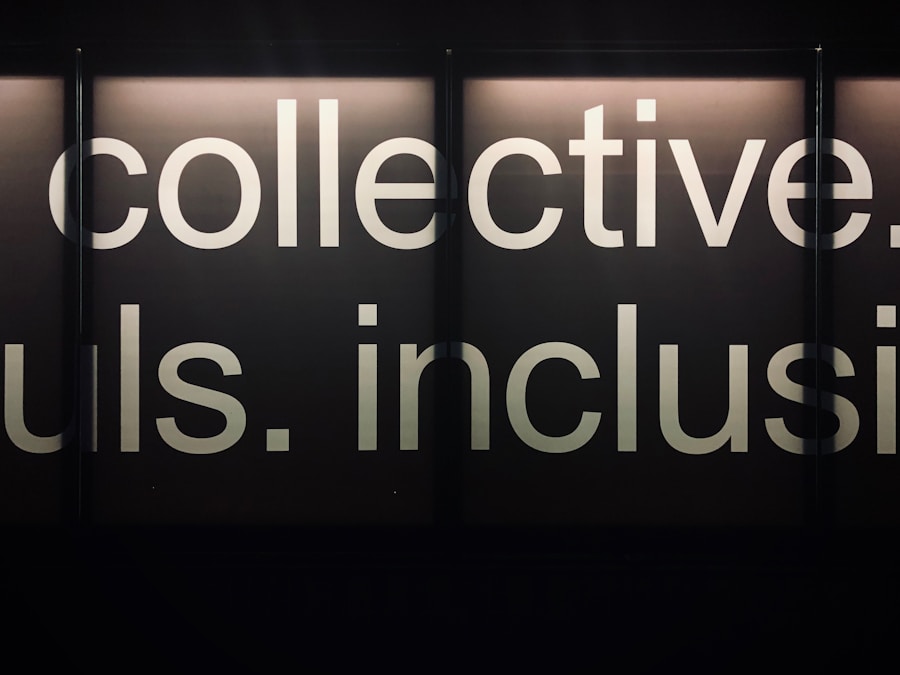Education serves as a cornerstone for individual and societal development, encompassing a wide array of objectives that extend beyond mere academic achievement. At its core, education aims to equip individuals with the knowledge and skills necessary to navigate the complexities of life. This includes fostering critical thinking, enhancing problem-solving abilities, and nurturing creativity.
The objectives of education are not static; they evolve in response to societal needs, technological advancements, and cultural shifts. For instance, in the 21st century, there is an increasing emphasis on digital literacy, which reflects the growing importance of technology in everyday life and the workforce. Moreover, education seeks to cultivate informed citizens who can engage thoughtfully in democratic processes.
This objective underscores the importance of teaching students about civic responsibility, ethical reasoning, and social justice.
The integration of social studies and humanities into curricula is a testament to this objective, as it encourages students to explore diverse perspectives and understand the historical context of contemporary issues.
Thus, the multifaceted objectives of education are essential for fostering not only knowledgeable individuals but also responsible members of society.
Key Takeaways
- Education aims to develop critical thinking, problem-solving skills, and a thirst for knowledge.
- Knowledge is best applied through practical experience and real-world application.
- Collaboration and understanding among students and educators are essential for a thriving learning environment.
- Education should focus on cultivating values such as empathy, integrity, and responsibility.
- A holistic approach to education considers the physical, emotional, and social well-being of students.
Applying Knowledge Through Action
The application of knowledge through action is a critical aspect of effective education. It is not enough for students to merely absorb information; they must also learn how to apply what they have learned in real-world contexts. This principle is often encapsulated in the concept of experiential learning, which emphasizes learning through experience and reflection.
For example, project-based learning allows students to engage in hands-on projects that require them to apply theoretical concepts to practical situations. This approach not only reinforces their understanding but also enhances their ability to work collaboratively and think critically. Furthermore, service-learning initiatives exemplify the application of knowledge through action by connecting academic learning with community service.
Students participating in such programs gain firsthand experience in addressing social issues while simultaneously developing empathy and a sense of civic duty. For instance, a high school biology class might partner with a local environmental organization to conduct research on local ecosystems, allowing students to apply their scientific knowledge while contributing to environmental conservation efforts. This synergy between knowledge and action fosters a deeper understanding of subject matter and cultivates a sense of agency among students.
Fostering a Community of Understanding and Collaboration

A thriving educational environment is characterized by a strong sense of community, where understanding and collaboration are paramount. This community aspect is essential for creating a safe space where students feel valued and respected, enabling them to express their thoughts and ideas freely. Collaborative learning experiences, such as group projects and peer discussions, encourage students to engage with one another, share diverse perspectives, and develop interpersonal skills.
These interactions not only enhance academic learning but also promote social cohesion among students from different backgrounds. In addition to fostering collaboration among students, educators play a crucial role in building a community of understanding within the classroom. By modeling inclusive practices and encouraging open dialogue, teachers can create an atmosphere where all voices are heard.
Such initiatives contribute to a positive school culture that values diversity and promotes mutual understanding, ultimately preparing students for success in an increasingly interconnected world.
Cultivating Values and Character
The cultivation of values and character is an integral component of education that shapes individuals into ethical and responsible citizens. Education should not solely focus on intellectual development; it must also address moral and ethical dimensions. Schools have the unique opportunity to instill core values such as integrity, respect, responsibility, and compassion in their students.
Character education programs are designed specifically for this purpose, often incorporating discussions about ethical dilemmas and real-life scenarios that challenge students to reflect on their values. Moreover, the integration of social-emotional learning (SEL) into educational curricula has gained traction as a means of fostering character development. SEL programs teach students essential skills such as self-awareness, emotional regulation, and relationship-building.
For example, a school might implement mindfulness practices that help students manage stress and develop resilience. By prioritizing character education alongside academic achievement, schools can produce well-rounded individuals who are not only knowledgeable but also possess the moral compass necessary to navigate life’s challenges.
Developing a Holistic Approach to Education
A holistic approach to education recognizes that learning encompasses more than just cognitive development; it involves emotional, social, physical, and spiritual growth as well. This comprehensive perspective acknowledges that each student is unique, with diverse needs and strengths that must be addressed for optimal learning outcomes. Holistic education emphasizes the interconnectedness of various aspects of a student’s life, promoting a balanced approach that nurtures the whole person.
In practice, holistic education can manifest through interdisciplinary curricula that integrate subjects such as art, music, physical education, and health into traditional academic disciplines. For instance, a school might offer a project that combines science with art by having students create visual representations of scientific concepts. This not only enhances engagement but also allows students to express themselves creatively while deepening their understanding of complex topics.
Additionally, schools that prioritize mental health resources and support systems contribute significantly to the holistic development of their students by addressing emotional well-being alongside academic performance.
Achieving Personal and Social Transformation through Education

Education has the profound potential to drive both personal and social transformation. On an individual level, education empowers people to pursue their passions, develop critical skills, and achieve their goals. It opens doors to opportunities that may have previously seemed unattainable, enabling individuals to break cycles of poverty or disadvantage.
For example, access to quality education can significantly impact a person’s earning potential and career trajectory, leading to improved quality of life for themselves and their families. On a broader scale, education serves as a catalyst for social change by promoting equity and justice within communities. When individuals are educated about their rights and responsibilities, they are more likely to advocate for themselves and others.
Initiatives aimed at increasing access to education for marginalized groups exemplify this transformative power. Programs that focus on adult education or literacy training can uplift entire communities by providing individuals with the tools they need to effect change in their lives and advocate for systemic improvements. In this way, education becomes not just a means of personal advancement but also a vehicle for collective empowerment and societal progress.
One related article to the Objectives of Education: Know, Do, Live Together, and Be is “Career Opportunities in UPSC India.” This article discusses the various career opportunities available in the Union Public Service Commission in India. To learn more about the career prospects in UPSC, you can read the article here.
FAQs
What are the objectives of education?
The objectives of education are to help individuals acquire knowledge, develop skills, foster a sense of community and cooperation, and cultivate personal values and character.
What is the “Know” objective of education?
The “Know” objective of education focuses on the acquisition of knowledge and understanding of various subjects, including mathematics, science, history, literature, and the arts.
What is the “Do” objective of education?
The “Do” objective of education emphasizes the development of practical skills and competencies that enable individuals to apply their knowledge in real-world situations, such as critical thinking, problem-solving, communication, and technical skills.
What is the “Live Together” objective of education?
The “Live Together” objective of education aims to promote social and emotional learning, empathy, and cooperation, fostering a sense of community and understanding of diverse perspectives and cultures.
What is the “Be” objective of education?
The “Be” objective of education focuses on the cultivation of personal values, ethics, and character development, aiming to nurture individuals who are responsible, ethical, and compassionate members of society.
























+ There are no comments
Add yours